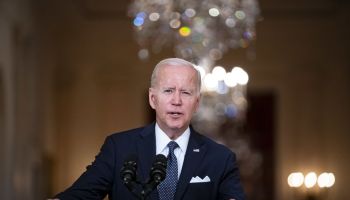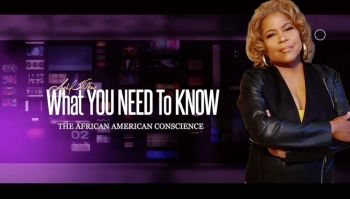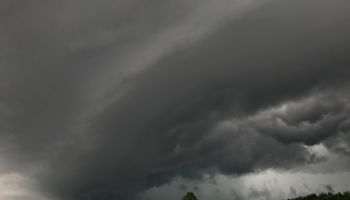Three reasons that efforts to prosecute Julian Assange aren’t drawing more of an outcry about the First Amendment.
by Ben Adler
If you think prosecuting journalists is the province solely of the sort of authoritarian governments in the developing world and the former communist bloc, think again. In the wake of WikiLeaks’s late-November dump of thousands of diplomatic cables, American provocateurs are urging the prosecution of the site’s founder, Julian Assange, and others who were involved in bringing the cables to the public’s attention. Of course, the alleged leaker, U.S. Army intelligence analyst Pfc. Bradley Manning, will face prosecution for giving away state secrets. Reporters and publishers who receive material from a government leaker, however, are typically considered protected from prosecution under the First Amendment.
But conservatives are calling for Assange’s head, in some cases literally. Sarah Palin urged that Assange be “pursued with the same urgency we pursue Al Qaeda and Taliban leaders,” and The Weekly Standard’s William Kristol wants the U.S. to “use our various assets to harass, snatch or neutralize Julian Assange and his collaborators.” And many are also inclined to prosecute the newspapers that worked with Assange. Sen. Joe Lieberman and former Bush administration attorney general Michael Mukasey argue for using the Espionage Act of 1917—which has never been used against a publisher before—to prosecute Assange and have suggested that The New York Times, which published material from WikiLeaks, could potentially be prosecuted as well. The Department of Justice announced that it is investigating whether Assange will be charged.
In the face of such an assault on press freedom, you might expect the American media to respond assertively. But the pushback has been piecemeal and somewhat muted. The board of Investigative Reporters and Editors Inc., a nonprofit organization, urged the U.S. government to “exercise great restraint,” warning of “actions that could undermine American traditions of a free press and open government.” The Committee to Protect Journalists sent a letter to President Obama and Attorney General Eric Holder forthrightly opposing any prosecution. But other organizations, such as the American Society of Magazine Editors and the National Association of Broadcasters, have not made any statements on the subject. The Society of Professional Journalists issued a tortured, somewhat inscrutable press release, saying their members could not reach a consensus on the probity of WikiLeaks’s actions and whether it should be considered journalism, but they seemed to accept the possibility of prosecution, writing, “If laws were broken in obtaining [information], then the legal process will move forward.”
Newspaper and magazine editors have generally avoided issuing statements on the matter, although The Washington Post editorial page came out against prosecution. (The New York Times, which received earlier WikiLeaks document dumps, has not run an editorial on the subject and did not respond to a request for comment as to the reason.)
Many in the foreign press have been more assertive in their defense of WikiLeaks. In Assange’s home country of Australia, the editors of most of the major papers signed a letter to Prime Minister Julia Gillard opposing prosecution of Assange in Australia or the U.S. “WikiLeaks, an organisation that aims to expose official secrets, is doing what the media have always done: bringing to light material that governments would prefer to keep secret,” the letter stated. “To prosecute a media organisation for publishing a leak would be unprecedented in the US, breaching the First Amendment protecting a free press. In Australia, it would seriously curtail Australian media organisations reporting on subjects the government decides are against its interests.”
The choice of the phrase “media organization,” to describe WikiLeaks, is notable. WikiLeaks is not a traditional newspaper, magazine, or broadcast. But in the digital-media era, new sources of information are being gathered under the more general rubric. One need not view Julian Assange as a journalist to believe that publishing the diplomatic cables is protected under freedom of the press. “There’s a lot of hair-splitting going on about whether WikiLeaks is journalism or Assange is a journalist,” says Bruce Shapiro, executive director of the Dart Center for Journalism and Trauma at Columbia. “To me that is not a relevant question. WikiLeaks is a publisher; Assange is a publisher.”
Legal experts suggest that the administration might seek to avoid running afoul of the First Amendment by focusing not on WikiLeaks’s publication of state secrets but on whether it technologically assisted or encouraged Manning in obtaining them. But that leads quickly to a slippery slope that involves prosecuting an investigative reporter for developing a source.
Nineteen professors—a little more than half the faculty—at the Columbia University Graduate School of Journalism, which is widely regarded as the nation’s most prestigious journalism program, signed a letter to the Obama administration arguing that WikiLeaks engaged in First Amendment–protected activity and should not be prosecuted, but the academics used more cautious wording than the Australians: “While we hold varying opinions of WikiLeaks’ methods and decisions, we all believe that in publishing diplomatic cables WikiLeaks is engaging in journalistic activity protected by the First Amendment.” The letter was the first, and so far the only, one from an American journalism-school faculty on the subject.
Civil libertarians are clear in their view that WikiLeaks should be protected by the First Amendment’s free-press rights and they warn that prosecution would set a dangerous precedent for other media outlets. “I dont think Assange has gotten enough of a defense from the major media,” says Michael Ratner, president of the Center for Constitutional Rights. “If government goes after him, they have a tough explanation as to why they went after him and not others.” Ratner warns that if Assange is charged it will have a chilling effect on investigative journalists who report on classified information. Indeed, that is precisely the outcome that Mukasey told Fox News he was hoping for, telling the channel, “Perhaps The New York Times ought to hesitate before doing something like [publishing material from Wikileaks].”
So why are American journalists hesitant to speak up for Assange? There are essentially three reasons.
1. Refusal to engage in advocacy: American journalists, unlike many of their foreign counterparts, have a strong commitment to objectivity and nonpartisanship. At many mainstream media organizations, signing petitions is verboten, and many journalists impose such rules on themselves. According to Shapiro, who co-wrote the Columbia letter, when they circulated the document, “Some people said, ‘As a journalist, I make it my practice never to sign a petition.’ ” As an example, Bill Grueskin, the dean of academic affairs at Columbia’s Journalism School, did not sign. Asked why by NEWSWEEK, he said he’s “not much of one for signing group letters.”
2. Opposition to Assange’s purpose: That same notion of objectivity shared by journalists makes many of them suspicious of WikiLeaks’s journalistic bona fides. Assange has an advocacy mission: to disrupt the functioning of governments. Many investigative journalists, like the famous muckrakers at the turn of the last century, have had a similar orientation, says Shapiro, who wrote the book Shaking the Foundations: 200 Years of Investigative Journalism in America. “WikiLeaks springs from the same purpose as investigative journalism: a sense that the system is corrupt and the truth can be told,” says Shapiro. “It’s a reformist rather than radical agenda.” Even so, many mainstream reporters, editors, and producers might see associating with Assange as inappropriately endorsing an advocacy mission.
Story Compliments Of Newsweek.com
















